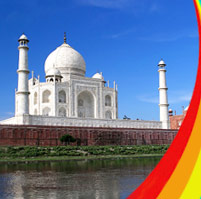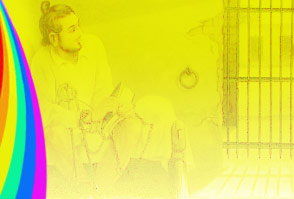Bhagat Singh was a visionary whose battles against
the British were based on the foundation of the principles he staunchly
believed in and cherished. Even though Bhagat took the plunge in the
non-cooperation movement called by Gandhi at an early age, he soon
became disenchanted with Gandhian philosophy and gradually embraced the
socialist way of thought. Bhagat Singh's 404 page jail diary, later
published as 'A Martyr's Book,' offers a glimpse into the philosophy and
thoughts of Bhagat Singh.
Marxism
Bhagat Singh was attracted to Marxism at a young age and the Russian
Revolution of 1917 greatly kindled the revolutionary zeal running in his
veins. He was greatly influenced by the thoughts of Marxist luminaries
such as Karl Marx and Friedrich Engels. After joining the Hindustan
Republican Association, Bhagat Singh and his comrades rechristened the
organization as Hindustan Socialist Republican Association and partook
in many revolutionary activities. Regarded as one of the earliest
Marxists in India, Bhagat Singh envisioned a socialist India with
equality for all.
Atheism
Bhagat Singh was a staunch atheist and he refused to acknowledge the
existence of an omnipresent God. He opined that God is the imaginary
creation of the man who is too conscious of his weaknesses, limitations
and shortcomings and each time he is confronted with trying
circumstances or dangers, he conveniently takes recourse to this
almighty God.
Because of such extreme beliefs, Bhagat Singh was criticized as being
arrogant and vain even by his fellow revolutionaries. During his period
of incarceration in 1931, while waiting for the hangman's noose, Bhagat
Singh wrote a pamphlet entitled 'Why I am an Atheist' to silence all the
criticism.









